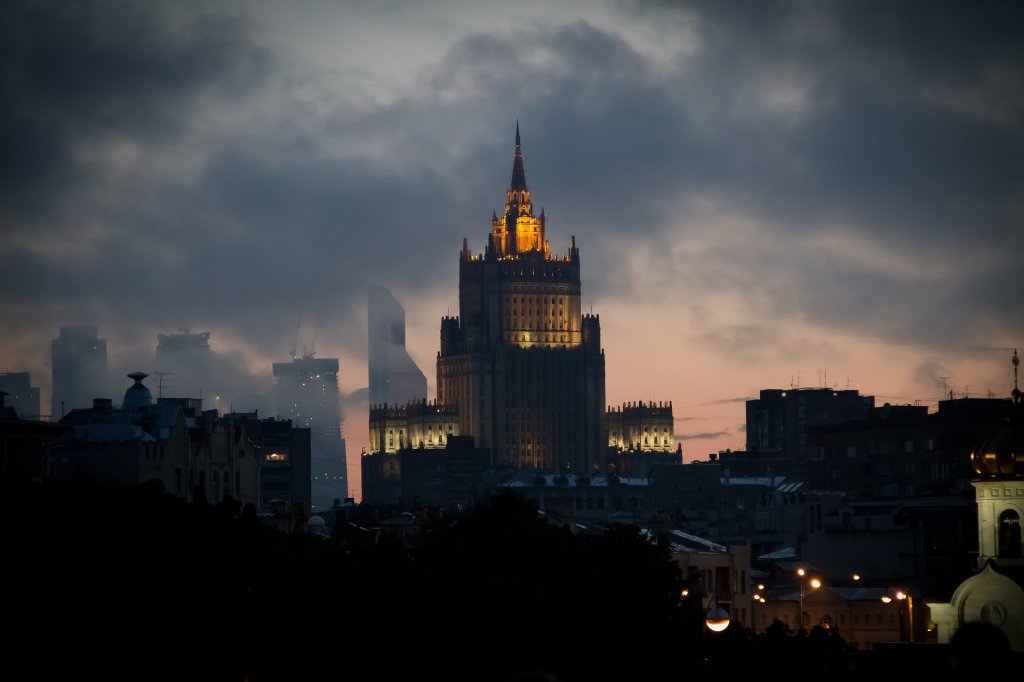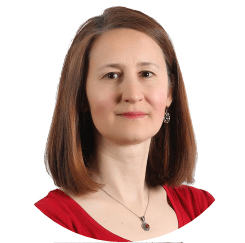
The academic discipline of International Relations (IR) will celebrate its 104th birthday in 2023 in the midst of ongoing conflicts, rising tensions and dangerous ambiguities in global politics. As the civil war in Syria is still going on after 11 years of its outbreak and Taliban regime is violating fundamental human rights in Afghanistan, Putin regime has started an unjust war in the neighbouring Ukraine on 24 February 2022. As the invasion continues unabated, the international community’s efforts are far from stopping the aggression of the Russian regime. In addition, the Russian president Vladimir Putin is often threatening the world with starting a nuclear war.
Then, it is the high time to ask the question of why the academic field of IR has so far failed to fulfill its most important task of preventing wars and establishing a peaceful global order? This opinion piece will try to shed light on the reasons for the current inability of the discipline to solve the fundamental problems in the inter-state relations.
The discipline was established in 1919 at the University of Aberystwyth in the United Kingdom. 20,000 Sterlin was donated to the University by a British family “in memory of the fallen students of our University for the study of those related problems of law and politics, of ethics and economics, which are raised by the prospect of a League of Nations and for the truer understanding of civilisation other than our own.” The Department of International Politics had just two lecturers at the beginning: Alfred Zimmern as the Woodrow Wilson Chair of International Politics and his fellow scholar Sydney Herbert. These scholars had a fundamental aim in the wake of the tragedy of the First World War: How to prevent the outbreak of new wars? How to establish a permanent peace? How to convince states to solve their problems via civilian means? How to establish international institutions to provide a diplomatic platform for states to have dialogue with each other and create alternative and peaceful means of solving their bilateral and multilateral problems? Though they were later called as ‘idealists’, they perceived their goals as quite realistic and feasible at the time.
During more than a century of IR history; many books, articles, reports, analyses were published all over the world. As the discipline has spread to other parts of the world in the following decades, there are now hundreds of IR departments all around the globe. From the East to the West, from the North to the South, thousands of scholars are working in IR departments at universities and think tanks. Many indexed journals with high impact factor have become the shining stars of the discipline as prestigious publishers are printing quality textbooks and scientific analyses. However, at the end of the day, despite all these flourishing publications and departments, the discipline could not yet fulfill the raison d’être of its existence: to prevent wars, conflicts and violence in global politics.
If we think of the discipline of medicine, it has found the treatment for so many illnesses since its emergence in the ancient period from plague to cholera, from tuberclosis to spanish flu. If we remember the recent timeline of corona pandemic, an effective vaccination (Biontech) was developed 1,5 years after the start of the pandemic. As another example, if we think of the IT departments, their inventions changed our daily lives completely. However, the IR department is still embedded in its basic research question and could not come up with an effective solution yet.
Putin regime is violating the very fundamental principles of international law and carrying out an unjust war in which civilians are especially targeted. Basic infrastructure of Ukrainian cities is being destroyed in front of our eyes. Putin aims to fulfill his expansionist aims and consolidate its near abroad policy in the ex-Soviet region by carrying out terrible massacres and destroying a country. In addition, he threatens to use nuclear weapons whenever he deems it appropriate. In April 2022 Putin stated that “If anyone sets out to intervene in the current events from the outside and creates unacceptable threats for us that are strategic in nature, they should know that our response … will be lightning-fast… We have all the tools for this, that no one else can boast of having. We won’t boast about it. We’ll use them, if needed. And I want everyone to know that.”
In September 2022 Putin once again threatened that Russia will use all the means at its disposal to defend its territory. These statements are a clear nuclear threat. It is so terrible that after more than a century of IR, ‘a man’ has still power at his hand to destroy the whole world via nuclear weapons.
Of course, it should also be noted that Putin regime is not the first of its kind to violate basic principles of the United Nations (UN) Charter and invade other countries. Some of the other permanent members of the UN Security Council did also carry out similar policies in the recent years. US-led invasion of Iraq in 2003 is another case from recent history of how the permanent members use violence in their foreign policy for their so-called “national interests”.
The key question is why the IR discipline could not become successful to end the wars and achieve permanent peace.
I think several reasons can be accounted for the failures of the IR field. First of all, the scholars have forgotten (or chosen to forget) that the basic aim of IR was to achieve peace. The focus on establishment of peaceful global order was replaced by works based on different kinds of realist understanding. There are “scientific” articles published in indexed journals that consider invasions necessary for national interests or they try to normalise the conflictual state of affairs. In addition, it should also be noted how the IR professors as well as journalists in discussion programs on TV channels all over the world try to explain Russian military tactics without questioning the invasion at all. There are abundant examples of these on Turkish TV channels as well. One example of such statements can be as follows: A Turkish “scholar” on one of these programs stated that Ukrainian people wanted to leave their country anyway and the Russian war gave them an opportunity to do so! Hence, thanks to Putin, they realised their aims! The normalisation of hard power politics and the internalisation of realism by scholars can very well be observed during times of conflict.
Second reason for the failure is still the domination of Western-origin understanding and concepts in the IR discipline. Although global IR is an emerging field, it still did not permeate the mainstream works adequately. Publications on understanding and implementation of IR in different regions of the world from Asia to Africa would provide us new frameworks to think IR from different perspectives.
Third reason is related to the linkage between scholarship and political hegemony. In some countries, including Turkey, some scholars perceive academia as a step forward for them to get different prizes in their future career, particularly in politics. Some of them just adopt the politically correct view in line with domestic Zeitgeist and forget about the basic principles of academic ethics. These organic intellectuals do not aim to come up with original scientific works at all. Therefore, the ethics of academia should be brought back to the agenda of the IR. Offering courses and seminars on academic ethics can be the first step.
Fourth, IR is still a male-dominated discipline. All over the globe male scholars still constitute the majority. Related with this fact, masculine understanding of global politics still dominate most of the writings despite important achievements of the feminist theory of international relations.
Despite this gloomy picture of the IR discipline, we should highlight some achievements as well. The statistical data show us that inter-state wars have a decreasing trend all over the world and deaths in battle continue to decline as well. (Pevehouse, Goldstein, 2017, s. 72-73) Therefore, although the wars did not come to an end yet, we face fewer conflicts and that should be related to development of the IR discipline in addition to some other factors as well.
Second achievement can be the establishment of a suprantional organisation, the European Union (EU), in which member states go beyond the Westphalian understanding of sovereignty based on nation-state and achieve to share their decision-making authority in different realms. An armed conflict among the EU members has just become unthinkable. Hence, the Kantian permanent peace has already been achieved in Europe and we should think about how to spillover the EU example to other parts of the world.
In addition, it should be noted that authoritarian states are more tempted to use violence in their foreign policy. Therefore, if the authoritarian turn in global system can be replaced by a new wave of democratisation, it should be expected to decrease the number of conflicts as well.
In conclusion, the new year can be seen as an opportunity to question and rethink about the IR scholarship in its 104th year. We need to remember why the discipline came into being in 1919. How we, as scholars, can contribute to change the war-ridden global politics and establish a peaceful global order. Otherwise, the IR would just be a derivative of global and domestic Zeitgeists and lose its importance in the coming decades. We can contribute to change the world, only if we, as scholars, wish to do so.
Bibliography
Bilgin Pınar and Zeynep Gülşah Çapan, Special Issue on Regional International Relations and Global Worlds: Globalising International Relations, Uluslararası İlişkiler, Vol. 18, No 70, 2021, https://uidergisi.com.tr/yazilar/cilt-18-sayi-70-2021
Pevehouse, John C. W. and Joshua S. Goldstein, International Relations, Boston, Pearson, 2017, p. 72-73.
Tharoor, Ishaan, “Russia pushes the panic button and raises risk of nuclear war”, Washington Post, 21 September 2022, https://www.washingtonpost.com/world/2022/09/21/russia-referendums-ukraine-occupied-nuclear/
“Timeline of Events”, Aberystwyth University, https://www.aber.ac.uk/en/interpol/about/centenary/interpollegacy/timelineofevents/
Wolfgang, Ben, “Angry Putin wields energy, nuclear threats against West”, Washington Times, 27 April 2022, https://www.washingtontimes.com/news/2022/apr/27/angry-putin-wields-energy-nuclear-threats-against-/

Prof. Dr. Birgül Demirtaş, Turkish-German University
Birgül Demirtaş is a faculty member at the Turkish-German University. She completed her undergraduate education in Boğaziçi University, her graduate education in Bilkent University, and her doctorate in Free University of Berlin (Freie Universitaet Berlin). She works on Turkish foreign policy, German foreign policy, the Balkans, local diplomacy and gender in academia.
To cite this work: Birgül Demirtaş, “The Future of the Discipline of International Relations in the Wake of Putin Regime’s War in Ukraine” Panorama, Online, 06 January 2023, https://www.uikpanorama.com/blog/2023/01/06/bd
Copyright@UIKPanorama. All on-line and print rights reserved. Opinions expressed in works published by the Panorama belongs to the authors alone unless otherwise stated, and do not imply endorsement by the IRCT, Global Academy, or the Editors/Editorial Board of Panorama.

